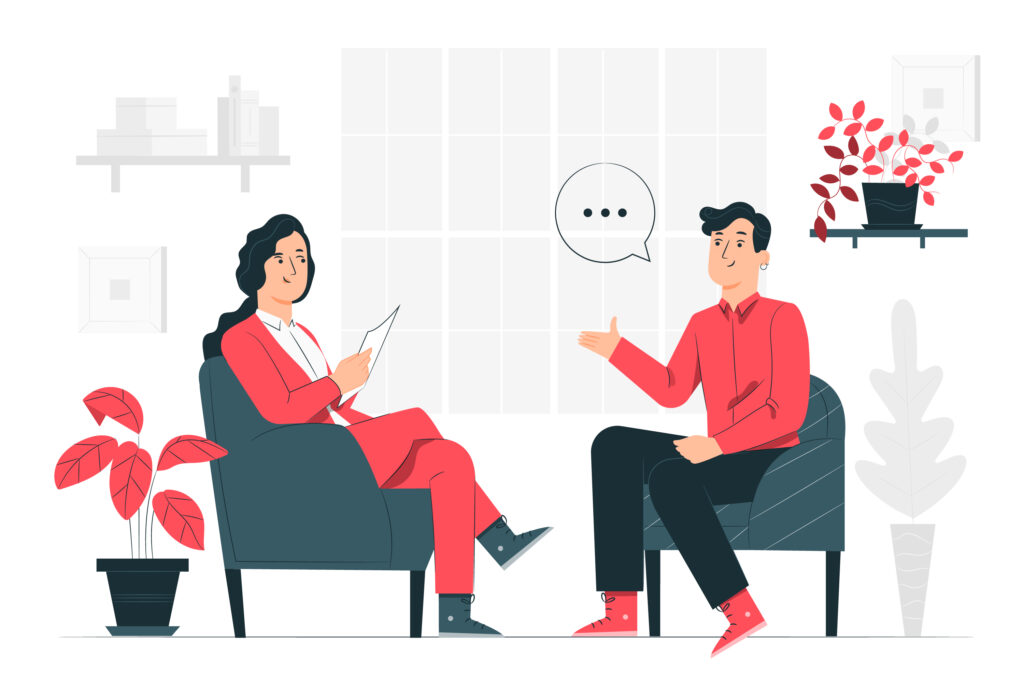Introduction
Securing a job interview is a significant achievement, but the real challenge lies in impressing your potential employer and landing the job. Preparing effectively for a job interview can set you apart from other candidates and significantly boost your chances of success. This guide provides a detailed roadmap to help you prepare thoroughly and crack your job interview.
Research the Company
Understand the Company’s Mission and Values
Start by researching the company’s mission statement, values, and culture. Visit the company’s official website and read through their “About Us” section. Understanding what the company stands for will help you align your answers with their core values.
Explore Recent News and Developments
Stay updated with the company’s recent news, projects, and achievements. Websites like Google News and Economic Times can provide the latest information. This knowledge will demonstrate your genuine interest in the company and its growth.
Know the Industry and Competitors
Gain insights into the industry in which the company operates. Understand the market trends, key players, and the company’s competitors. This context will help you discuss how you can contribute to the company’s success within its competitive landscape.
Understand the Job Description
Analyze the Key Responsibilities
Thoroughly read the job description and highlight the primary responsibilities. Understanding these will help you tailor your answers to show how your skills and experience align with the role’s requirements.
Identify Required Skills and Qualifications
List the skills and qualifications mentioned in the job description. Prepare examples from your past experience that demonstrate your proficiency in these areas. This preparation will enable you to answer competency-based questions confidently.

Prepare Your Answers
Common Interview Questions
- Tell me about yourself.
- Structure your answer using the Past-Present-Future formula. Start with your background (Past), explain your current role (Present), and discuss why you’re excited about this opportunity (Future).
- Why do you want to work here?
- Mention specific aspects of the company that appeal to you, such as its culture, mission, or recent projects. Relate these to your career goals and how you can contribute to the company’s success.
- What are your strengths and weaknesses?
- Highlight strengths relevant to the job and back them up with examples. When discussing weaknesses, mention steps you’re taking to improve.
Behavioral Questions
Use the STAR method (Situation, Task, Action, Result) to structure your answers for behavioral questions. This method helps you provide concise and compelling responses.
- Describe a time when you faced a significant challenge at work.
- Situation: Briefly describe the context.
- Task: Explain your responsibility in that situation.
- Action: Detail the steps you took to address the challenge.
- Result: Share the outcome and what you learned.
- Give an example of a time when you demonstrated leadership skills.
- Use the STAR method to highlight your leadership abilities and the positive impact you had.
Practice Your Interview Skills
Conduct Mock Interviews
Practice with a friend, family member, or mentor. Alternatively, use online platforms like Pramp for mock interviews. This practice will help you refine your answers and improve your confidence.
Record and Review
Record your practice sessions and review them. Pay attention to your body language, tone of voice, and clarity of your responses. This self-assessment will help you identify areas for improvement.
Dress Appropriately
Research the Company’s Dress Code
Understand the company’s dress code by checking their website or asking current employees. For most corporate jobs, business formal attire is appropriate, while business casual might be acceptable in more relaxed environments.
Choose Your Outfit
Ensure your outfit is clean, well-fitted, and professional. Avoid bright colors or flashy accessories. Remember, first impressions matter.
Gather Your Documents
Prepare a portfolio containing multiple copies of your resume, a list of references, and any certificates or letters of recommendation. Additionally, bring a notebook and pen for taking notes during the interview.
Plan Your Journey
Know the Location
If the interview is in-person, familiarize yourself with the location and plan your route. Use Google Maps or other navigation tools to find the best route and estimate travel time.
Arrive Early
Aim to arrive 10-15 minutes early. This buffer time will help you compose yourself and review your notes before the interview.
During the Interview
Make a Strong First Impression
Greet your interviewer with a firm handshake and a smile. Maintain eye contact and be polite and confident.
Listen Actively
Pay close attention to the questions being asked and ensure you understand them before responding. Active listening demonstrates your attentiveness and respect for the interviewer.
Ask Insightful Questions
Prepare a list of questions to ask the interviewer. This can include inquiries about the team, company culture, and growth opportunities. Asking questions shows your genuine interest in the role and helps you assess if the company is a good fit for you.
Be Honest and Authentic
Honesty is crucial during an interview. If you don’t know the answer to a question, it’s better to admit it than to fabricate a response. Authenticity builds trust and leaves a positive impression.

Follow Up After the Interview
Send a Thank-You Email
Within 24 hours of the interview, send a thank-you email to express your gratitude for the opportunity. Reiterate your interest in the position and briefly highlight how your skills align with the role.
Example:
Subject: Thank You – [Your Name]
Dear [Interviewer’s Name],
Thank you for the opportunity to interview for the [Job Title] position at [Company Name] yesterday. I enjoyed learning more about your team and the exciting projects you’re working on.
I am enthusiastic about the possibility of contributing to [Company Name] and believe my skills in [mention key skills] would be a valuable asset to your team.
Please feel free to contact me if you need any further information. Thank you again for your time and consideration.
Best regards,
[Your Name]
Conclusion
Preparing thoroughly for a job interview can make a significant difference in your performance and confidence. By researching the company, understanding the job description, practicing your responses, dressing appropriately, and following up with a thank-you email, you can set yourself apart from other candidates and increase your chances of securing the job. Remember, preparation is key to cracking any job interview. Good luck!


